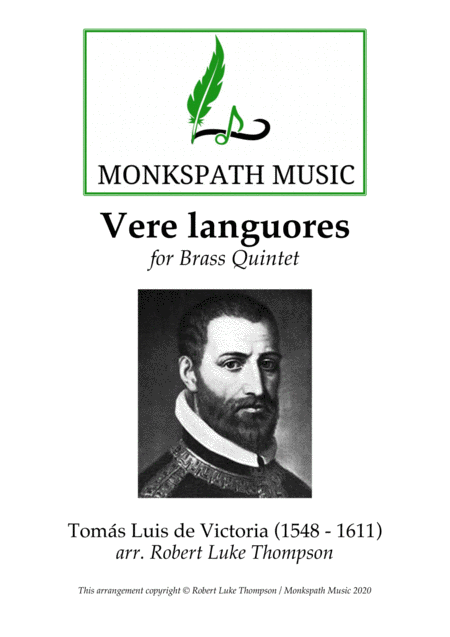Baritone Horn TC,Bass Trombone,Cornet,Euphonium,Flugelhorn,Trumpet,Tuba - Level 3 - Digital Download SKU: A0.979769 Composed by Tomas Luis de Victoria. Arranged by Robert Luke Thompson. Early Music,Religious,Renaissance,Sacred,Spiritual. 13 pages. Monkspath Music #6025811. Published by Monkspath Music (A0.979769). Vere Languores is a text often used in sacred motets, drawing from Isaiah 53:4, and Crux Fidelis. Tomás Luis de Victoria, an accomplished singer, organist, and Catholic priest, is an important Spanish composer of the 16th-century Counter-Reformation, alongside other heavyweight names such as the Italian composer, Giovanni Pierluigi da Palestrina. Victoria’s first book of motets (Motecta I), published in 1572, features Vere languores as the eleventh work. This arrangement has been transposed to a more brass friendly key, and where appropriate, breath marks have been suggested to align with the original text. It is possible to omit the Tuba and use this arrangement as a quartet. A worthwhile addition for any concert, programme, or service, especially those in a sacred venue with impressive acoustics, such as a church or cathedral. For further pieces, view the Monkspath Music catalogue and click here!
